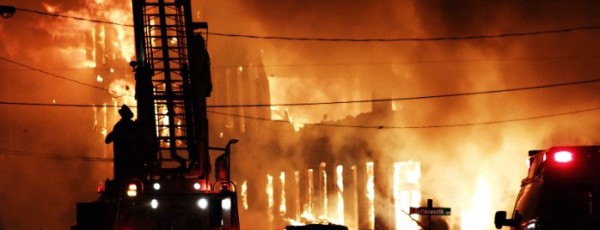Smoke Signals: Smoke & CO Detectors Save Lives

Do you remember back when you were in elementary school; October would roll around and because it was fire prevention month you might have had a field trip to the local fire station or had a fire engine come to your school. The firefighters would have talked about what to do if there was a fire at your house, and they would have emphasized the importance of having a smoke detector outside each bedroom and making sure to test them and change the batteries.
Smoke detectors (and carbon monoxide or CO detectors) are critical to protecting lives in your facilities. Note that I did not say protecting property; the main goal of this article and of detectors in general is to make sure that all of the occupants are able to escape. (Although if occupants are warned of a fire and can safely egress the building, they have a much better chance of calling for assistance in a timely manner, so that hopefully damage is lessened).
Not sure why it is important to make sure smoke detectors and alarm systems are working properly? Check out this video produced by the Oak Ridge, TN fire department showing just how quickly a small fire becomes an inferno:
.
CA state law requires single and multi- family buildings to have both smoke and CO detectors (CA SB-183), so that gives you a good incentive. Generally, though, you should have detectors in your facilities because you want to make sure that everyone has ample warning and time to escape if the need ever arises.
What proactive steps should you take to make sure your detectors and alarms are working properly:
- Test each detector monthly to ensure proper function. This is an easy task to commit to and then forget about, so make it a recurring appointment in your calendar and keep a log so that you can make sure the tests are being done.
- Replace batteries every 6 months. The rule of thumb used to be to change the batteries when the time changed, which is better than nothing. The best plan is to have all the batteries replaced on set dates (e.g.: June and December 15th).
- Have an evacuation plan and practice it twice a year. Yes, do fire drills. One of our clients had their fire alarm set off accidentally by a contractor doing work on site. The preschool kids and teachers evacuated in an orderly fashion, went to their rally point, and watched the fire engines roll up. The adult staff working in the building wandered around asking each other why the alarm was going off and then panicked when the fire department arrived. Don’t be like those adult staffers; have a plan and make sure everyone knows what it is and follows it when the alarms go off. Your life may just depend on it.
- Do not assume that you should not have CO detectors just because you are not a residential facility. If you have furnaces or other gas fired appliances, you need to have CO detectors. Otherwise when you feel yourself nodding off at your desk it might not be because of the boring meeting you just left, it could be because you are slowly asphyxiating.
- Upgrade your detectors to a monitored alarm system. This makes sense because it will pay for itself over time (most insurance companies reduce policy costs for facilities that are actively monitored) and because emergencies occur 24 hours a day, seven days a week and you want to be protected at all times.
- Get professional help. Not sure where all your detectors are or where they should be installed? Need help upgrading your system? Need to create or update an evacuation plan? Do not get overwhelmed because this is “one more thing” being dumped on your plate. There are tons of resources including the National Fire Protection Association (NFPA.org), Cal Fire (fire.ca.gov), your local fire department, fire alarm companies, and other consultants who can assist you in all of these things. Ask for help if you need it.
And most of all, stay safe out there. We like you and want you to keep reading our blog posts.
